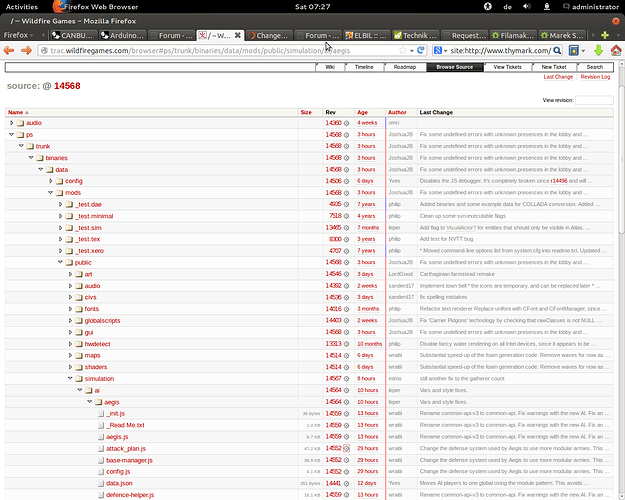You are right, I also prefer a ticket system like trac. What impressed me most is the really nice integration of their SVN and Git repository in 0 A.D. Oh wait, I don’t want to loose our developers to 0 A.D., please don’t leave us, … I just want to use their trac system as an example.
I like their trac tool setup (we have also used it at university, but it is does not look that convincing there). Its forum integration is still not perfect, but it’s at least a bit integrated into the forum (e.g. ticket status is shown in the forum too, if a ticket is cited there, all automatically without user input). The loss of information in the masses of data in the forum is still a problem though.
Generally, in a forum I would like to have a summary page to every thread, but using the first thread for this reason - though possible - is no good idea, as the first post should be permitted to allow HTML and Wiki-tags and I don’t know if that’s possible (tbd) … If it’s not then either only administrators and moderators could create new threads/topics because only they have the rights for HTML and Wikitags (this hierarchy I dislike anyway) or the moderators have to activate html and Wikicodes for each new topic - a quite heavy workload. 
I know there is a possibility to put a small textarea that is editable for all users that allows Wiki-tags … but still I did not get around getting it done (via php templates). … yes … oh well, why? I don’t really know, perhaps I just am not good enough. 
If this works, this would be the solution for the forum mess that is seen around the web everywhere (even at microcontroller.net).
The trac/ticket system, which itself integrates versioning of the dev-files with easy option to display all changes of each and everything by clicking on this icon

, when you reach this example changes overview page Note that of course this is not a question of Git vs SVN vs Mercurial vs Bazar. It’s about the ticket integration. For example the tickets that are solved are automatically scored through [durchgestrichen]. Every member can freely change the ticket state and post answers. I think it’s quite cool.)
I also have written a monolog about wiki-development-site-Integration and hope it will turn into a heated discussion: ( :
https://discourse.test.opensourceecology.de/t/sollte-das-wiki-entwicklerseiten-spiegeln/504/1
